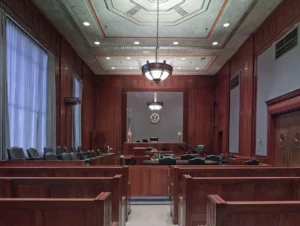Obtaining a Green Card is a crucial step for individuals aiming to achieve permanent residency in the United States. This process involves a series of legal steps and an understanding of immigration law to navigate successfully. This comprehensive guide provides detailed insights into the Green Card process, including eligibility requirements, application procedures, and practical advice to help you secure your future in the U.S.
Understanding Green Cards
A Green Card, officially known as a Permanent Resident Card, grants an individual the right to live and work permanently in the United States. It serves as proof of permanent resident status and allows the holder to apply for U.S. citizenship after meeting certain requirements. Obtaining a Green Card is a significant milestone for those seeking to establish a long-term presence in the country.
Eligibility for a Green Card
The first step in obtaining a Green Card is determining your eligibility. There are several categories under which you can apply for a Green Card, each with specific requirements:
1. Family Sponsorship: U.S. citizens and permanent residents can sponsor certain family members for a Green Card. Immediate relatives, such as spouses, parents, and unmarried children under 21, have a straightforward path, while other family members may face longer waiting times due to annual quotas.
2. Employment-Based: Various employment-based categories exist for professionals, skilled workers, and investors. For example, the EB-1 category is for individuals with extraordinary abilities, while the EB-5 category is for investors who invest significant capital in a U.S. business that creates jobs.
3. Refugee or Asylum Status: Individuals who have been granted refugee or asylum status can apply for a Green Card one year after being admitted to the U.S. under these conditions.
4. Diversity Lottery: The Diversity Visa Lottery Program provides a limited number of Green Cards annually to individuals from countries with low immigration rates to the United States. Applicants are selected randomly and must meet eligibility criteria.
The Application Process
The Green Card application process involves several steps, each requiring careful attention to detail:
1. Petition Submission: Depending on your eligibility category, an initial petition must be filed. For family-sponsored Green Cards, this involves Form I-130 (Petition for Alien Relative), while employment-based petitions use Form I-140 (Immigrant Petition for Alien Worker).
2. Application for Permanent Residency: After the petition is approved, the next step is to file Form I-485 (Application to Register Permanent Residence or Adjust Status). This form collects information about your background, employment, and residency history.
3. Biometrics Appointment: Applicants must attend a biometrics appointment to provide fingerprints, photographs, and signatures. This step is essential for conducting background checks.
4. Interview: Some applicants will be required to attend an interview with a U.S. Citizenship and Immigration Services (USCIS) officer. The interview assesses the validity of the application and the applicant’s eligibility for a Green Card.
5. Decision: After reviewing all submitted documents and interview results, USCIS will decide on your application. If approved, you will receive your Green Card by mail.
Case Studies: Successes and Challenges in Obtaining a Green Card
Success Story: Maria, a software engineer from Mexico, successfully obtained her Green Card through the EB-2 category for professionals with advanced degrees. By carefully preparing her documentation and working closely with an immigration attorney, Maria navigated the process smoothly and received her Green Card within two years.
Challenge Example: Ahmed, an applicant from Egypt, faced delays and challenges in obtaining his Green Card through family sponsorship. Issues with incomplete documentation and a lengthy backlog extended his waiting period significantly. This case highlights the importance of meticulous preparation and understanding the nuances of the application process.
Comparative Analysis of Green Card Processes
Green Card processes can vary significantly based on the eligibility category and individual circumstances. For example, family-sponsored Green Cards typically involve longer waiting periods due to annual quotas, while employment-based Green Cards can be expedited for individuals with extraordinary abilities or significant investments.
Understanding these differences is crucial for applicants to set realistic expectations and tailor their application strategy accordingly. Comparative analysis helps identify the most efficient pathway to permanent residency based on personal qualifications and circumstances.
Detailed Breakdown of Legal Consequences
Failing to adhere to the legal requirements and processes for obtaining a Green Card can result in severe consequences, including denial of the application, deportation, and bans on reentry. It is essential to understand and comply with all legal steps to avoid these outcomes:
1. Application Denial: Common reasons for denial include incomplete or inaccurate documentation, failure to attend required appointments, and not meeting eligibility criteria. Understanding these pitfalls helps applicants prepare stronger applications.
2. Deportation: Non-compliance with U.S. immigration laws can lead to deportation. For example, failing to maintain legal status while awaiting a Green Card decision can result in removal from the country.
3. Reentry Bans: Individuals who overstay their visas or violate immigration laws may face bans on reentry to the United States for several years. These bans complicate future efforts to obtain permanent residency.
Step-by-Step Guide to the Green Card Process
1. Determine Eligibility: Review the various eligibility categories to determine the most suitable pathway for obtaining a Green Card. Consult with an immigration attorney if needed.
2. Prepare Documentation: Gather all required documents, including identification, employment records, financial statements, and any other relevant information. Ensure all documents are accurate and complete.
3. File Initial Petition: Submit the appropriate initial petition (e.g., Form I-130 or Form I-140) to USCIS. Pay attention to filing instructions and fees.
4. File Form I-485: After the initial petition is approved, file Form I-485 to apply for permanent residency. Include all necessary supporting documents and pay the application fee.
5. Attend Biometrics Appointment: Schedule and attend a biometrics appointment to provide fingerprints, photographs, and signatures.
6. Prepare for Interview: If required, prepare for the USCIS interview by reviewing your application and gathering any additional supporting documents.
7. Receive Decision: Wait for USCIS to process your application and issue a decision. If approved, receive your Green Card by mail.
Technology and Tools in the Green Card Process
Technology has greatly facilitated the Green Card application process, providing tools and platforms for applicants to manage their documentation and track their application status:
1. Online Application Portals: USCIS offers online portals for filing petitions and applications, allowing for more efficient submission and tracking.
2. Document Management Software: These tools help applicants organize and store their documents digitally, ensuring easy access and preventing loss of important paperwork.
3. Status Tracking Tools: Online tools and mobile apps provide real-time updates on the status of Green Card applications, helping applicants stay informed throughout the process.
Legislative Changes and Trends
U.S. immigration laws and policies are subject to change, reflecting shifts in political priorities and societal needs. Staying informed about these changes is crucial for Green Card applicants:
1. Policy Updates: Changes in immigration policies can impact eligibility criteria, processing times, and application procedures. Keeping abreast of these updates ensures compliance and optimizes application strategies.
2. Legislative Reforms: Proposed legislative reforms may introduce new pathways to permanent residency or modify existing ones. Understanding these potential changes helps applicants plan effectively.
3. Public Charge Rule: Recent changes to the public charge rule, which assesses an applicant’s likelihood of becoming dependent on government assistance, have significant implications for Green Card applications. Applicants must understand how these changes affect their eligibility.
Ethical Considerations in the Green Card Process
Ethical considerations are paramount in the Green Card application process, guiding applicants and legal professionals to act with integrity and fairness:
1. Honesty and Accuracy: Applicants must provide truthful and accurate information in their applications. Misrepresentation or fraud can lead to severe legal consequences, including denial of the application and deportation.
2. Fair Representation: Immigration attorneys and consultants must act in their clients’ best interests, providing honest advice and avoiding conflicts of interest.
3. Respect for the Law: Compliance with all immigration laws and regulations is essential. Applicants should follow legal procedures diligently and avoid shortcuts or unethical practices.
Finding the Right Attorney for Green Card Applications
When navigating the Green Card process, finding an attorney with expertise in immigration law is crucial. Here are some steps to help you find the right legal representation:
Research: Look for attorneys who specialize in immigration law and have a proven track record in handling Green Card applications. Use online directories, read reviews, and consult with legal aid organizations for recommendations.
Consultations: Schedule consultations with potential attorneys to discuss your case. Ask about their experience with Green Card applications, their approach to legal strategy, and their familiarity with current immigration laws and regulations.
Recommendations: Seek recommendations from trusted sources, such as friends, family, or community organizations. Personal referrals can provide valuable insights into an attorney’s reliability and effectiveness.
A reliable resource for finding qualified attorneys is Attorneys.Media, which offers a comprehensive directory of legal professionals. By using this platform, you can search for attorneys based on their expertise, location, and client reviews, ensuring you find the best possible representation for your Green Card application.
FAQs about Green Cards
Q: What are the main pathways to obtaining a Green Card? A: The main pathways include family sponsorship, employment-based categories, refugee or asylum status, and the diversity lottery.
Q: How long does the Green Card application process take? A: Processing times vary based on the eligibility category and individual circumstances. It can range from several months to several years.
Q: Can I apply for a Green Card if I am already in the U.S. on a temporary visa? A: Yes, certain visa holders can apply for a Green Card through the adjustment of status process. Consult with an immigration attorney to determine your eligibility.
By understanding the legal steps and requirements for obtaining a Green Card, individuals can navigate the path to permanent residency successfully and secure their future in the United States.
- Understanding Green Cards and Permanent Residency URL: https://www.uscis.gov/greencard
- Family-Based Green Card Process URL: https://www.uscis.gov/family/family-of-us-citizens
- Employment-Based Green Card Categories URL: https://www.uscis.gov/working-in-the-united-states/permanent-workers
- Green Cards for Refugees and Asylees URL: https://www.uscis.gov/humanitarian/refugees-and-asylum/asylum/green-card-for-asylees
- Diversity Visa Lottery Program URL: https://travel.state.gov/content/travel/en/us-visas/immigrate/diversity-visa-program-entry.html
- Green Card Application Process Overview URL: https://www.alllaw.com/articles/nolo/us-immigration/green-card-application-process.html
- USCIS Form I-485: Application to Adjust Status URL: https://www.uscis.gov/i-485
- Biometrics Appointment for Immigration Applications URL: https://www.uscis.gov/forms/filing-guidance/uscis-biometrics-services
- Preparing for Your USCIS Green Card Interview URL: https://www.boundless.com/immigration-resources/green-card-interview-guide/
- Changes to Public Charge Rule and Its Impact URL: https://www.migrationpolicy.org/news/mpi-issues-statement-new-public-charge-rule





















